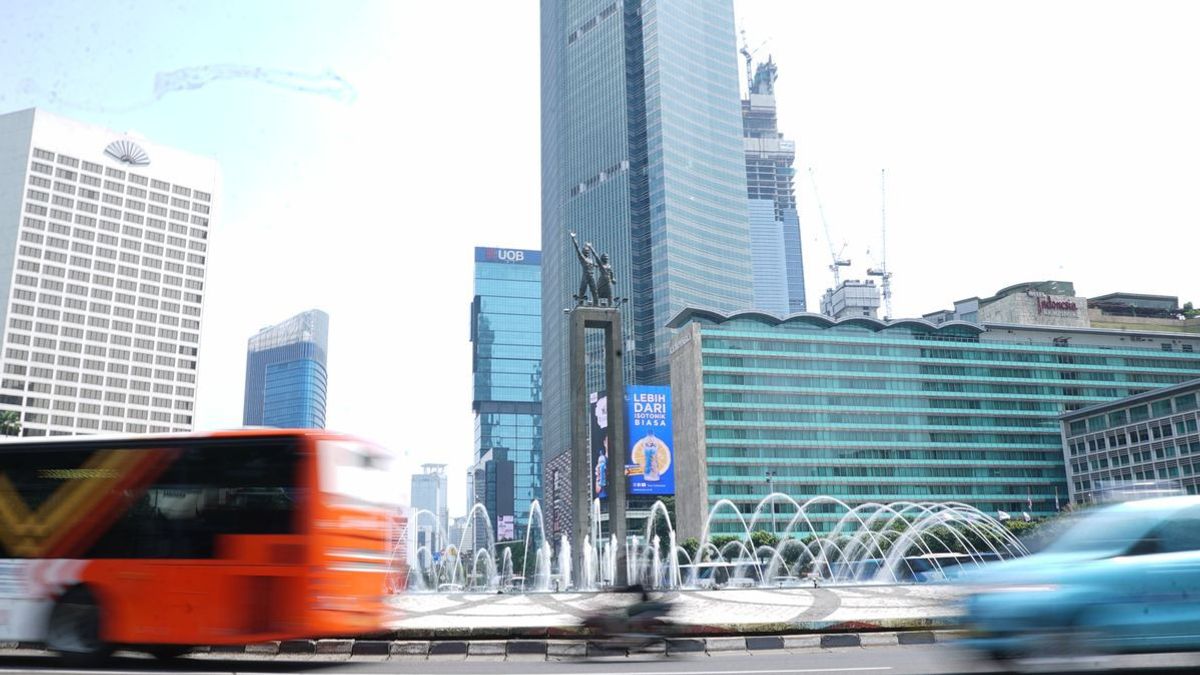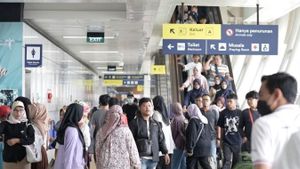JAKARTA - DKI Jakarta Governor Anies Baswedan targets Jakarta to reduce carbon emissions by 50 percent by 2030. In fact, Anies targets emission levels in Jakarta to be zero by 2050. This he conveyed in the Jakarta e-Mobility discussion.
"We are committed to reducing greenhouse gas emissions by 30 percent this year. Our target is to achieve zero emissions by 2050," said Anies, seen on the DKI Jakarta Provincial Government Youtube, Tuesday, March 1.
Anies then explained the DKI Provincial Government's way of reducing emissions in the capital city. Anies said, the transformation of Jakarta as a city of traffic jams and filled with air pollution to low emissions was carried out by providing an integrated transportation system.
The transportation sector is important. Because, currently millions of people commute in Jakarta, both from within the city and the Jabodetabek buffer area.
"Given that scope, millions of people in our cities have daily mobility, this high volume of daily mobility, emissions from the transportation sector have definitely given us a big impact on total emissions," said Anies.
Therefore, the DKI Provincial Government has begun to make major improvements to the public transportation system in recent years.
Among them are the expansion of the Transjakarta route and the integration of Microtrans to achieve service coverage of 82 percent and increasing the PSO (public service obligation) for public transportation by 180 percent in 2020 compared to 2017.
In addition, infrastructure for pedestrians and bicycles is also continuously improved, such as revitalizing 364 kilometers of sidewalks throughout Jakarta and building 12 kilometers of protected bicycle lanes, as well as 63 bicycle sharing areas around transit areas on the city's busiest roads.
“Efforts to expand the scope of public transport and improve the quality of its supporting services have paid off. In just two years, the number of annual passengers on public transport in Jakarta has doubled in 2019," Anies explained.
In addition, Anies conveyed the implications of electrifying the Transjakarta fleet in the future to accelerate the vision of realizing clean mobility in Jakarta. Anies said, the DKI Provincial Government is also committed to shifting the Transjakarta fleet to electric buses. As a start, there will be the implementation of 100 electric buses on the existing Transjakarta route for a pilot program. Going forward, TransJakarta will replace half of its bus fleet into an electric fleet, gradually before 2025.
"By shifting our public transport fleet to electric vehicles and encouraging people to use public transport, we hope to achieve improved air quality and better health benefits," he added.
The English, Chinese, Japanese, Arabic, and French versions are automatically generated by the AI. So there may still be inaccuracies in translating, please always see Indonesian as our main language. (system supported by DigitalSiber.id)













